Museums have discovered new ways to connect with the public during the pandemic
Dan Radmacher | April 15, 2021 | No Comments
By Dan Radmacher
The West Virginia Mine Wars Museum was preparing for a big year in 2020. The centennial of the Battle of Matewan was coming up in May and the museum had just moved into a larger space that was in the middle of renovations when Gov. Jim Justice declared a statewide emergency due to the COVID pandemic on March 16.
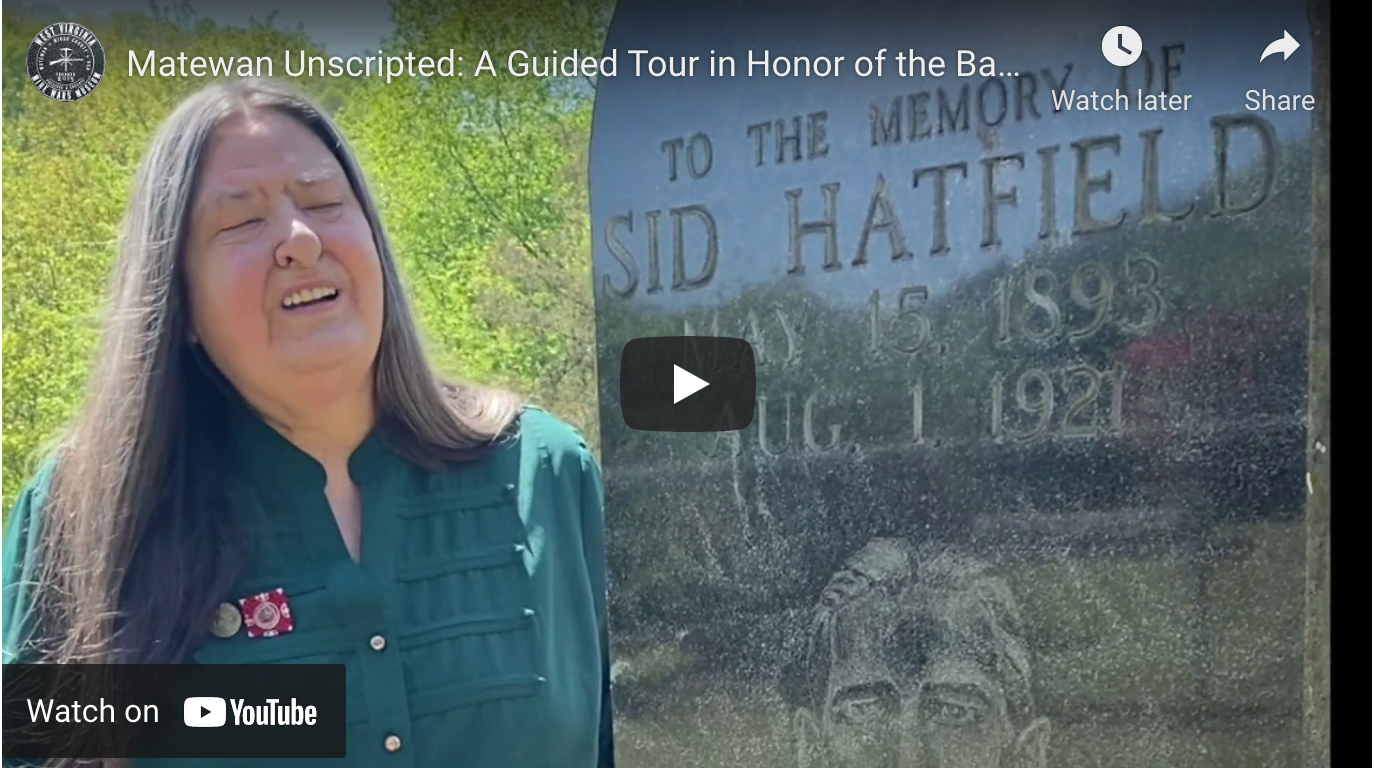
Instead of hosting the grand reopening on May 16, 2020, that they had planned, the West Virginia Mine Wars Museum marked the 100th Anniversary of the Battle of Matewan with an unscripted video walking tour of the town hosted by many of the people involved in creating and maintaining the museum. Founding Board Member Wilma Steele stands by the gravestone of Sid Hatfield. Image courtesy of West Virginia Mine Wars Museum
“It became very clear that all in-person activities just wouldn’t happen,” says Museum Director Mackenzie New-Walker. “Travel was limited. People were on mandatory quarantines. It wasn’t safe for construction crews. We realized we couldn’t finish the rebuild by May. The museum was in a very weird position.”
That was true for museums across the region, even those not in the middle of construction.
In Blowing Rock, North Carolina, the Blowing Rock Art and History Museum had just gotten pieces in from artists all over the state for an exhibit slated to open March 21 featuring works crafted from wood. Then the state issued a stay-at-home order and closed all nonessential businesses.
“Everything came to a screeching halt,” says BRAHM Program & Outreach Director Willard Watson III.
BRAHM had seen its biggest year for attendance and fundraising in 2019 and was looking for 2020 to be even better. Instead, the museum had to cancel lectures, concerts and workshops — more than 100 events, eventually.
“We realized we had to do something,” says Watson. “Life stresses make art even more important.”
Like the staff at many museums, BRAHM staff members quickly realized that going online would be key.
“We totally redesigned the website,” says Watson. “Every day of the week, we had content: Behind-the-scenes, virtual tours, art lessons. We interviewed artists and produced content for a YouTube page.”
According to Watson, the museum went from not having a presence on YouTube at all to producing 90 videos that have received more than 16,000 views.
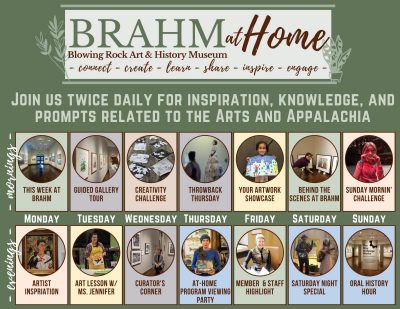
At the beginning of the pandemic, BRAHM began offering a full suite of digital programming. Image courtesy of BRAHM
“Like everybody else, we stepped away thinking we’d be back really soon and it would all move quickly,” says April Corbett, director of marketing and outreach for the center. “I don’t think anyone understood the longevity of the situation when we got into it. But we knew quickly we were going to have to figure out a way to engage our audience.”
She started recording short videos. Local television personality John Carlin did several videos discussing the various fish in the lobby aquariums. Curriculum Director Amanda Wright hosted videos showing off the center’s green rooftop and solar panels.
Corbett also did a weekly craft night on Facebook Live. “It was fun to do,” she says. “We were trying to engage kids and parents and help them understand that they could use materials on hand to do these projects — continual learning out of your recycling bin.”
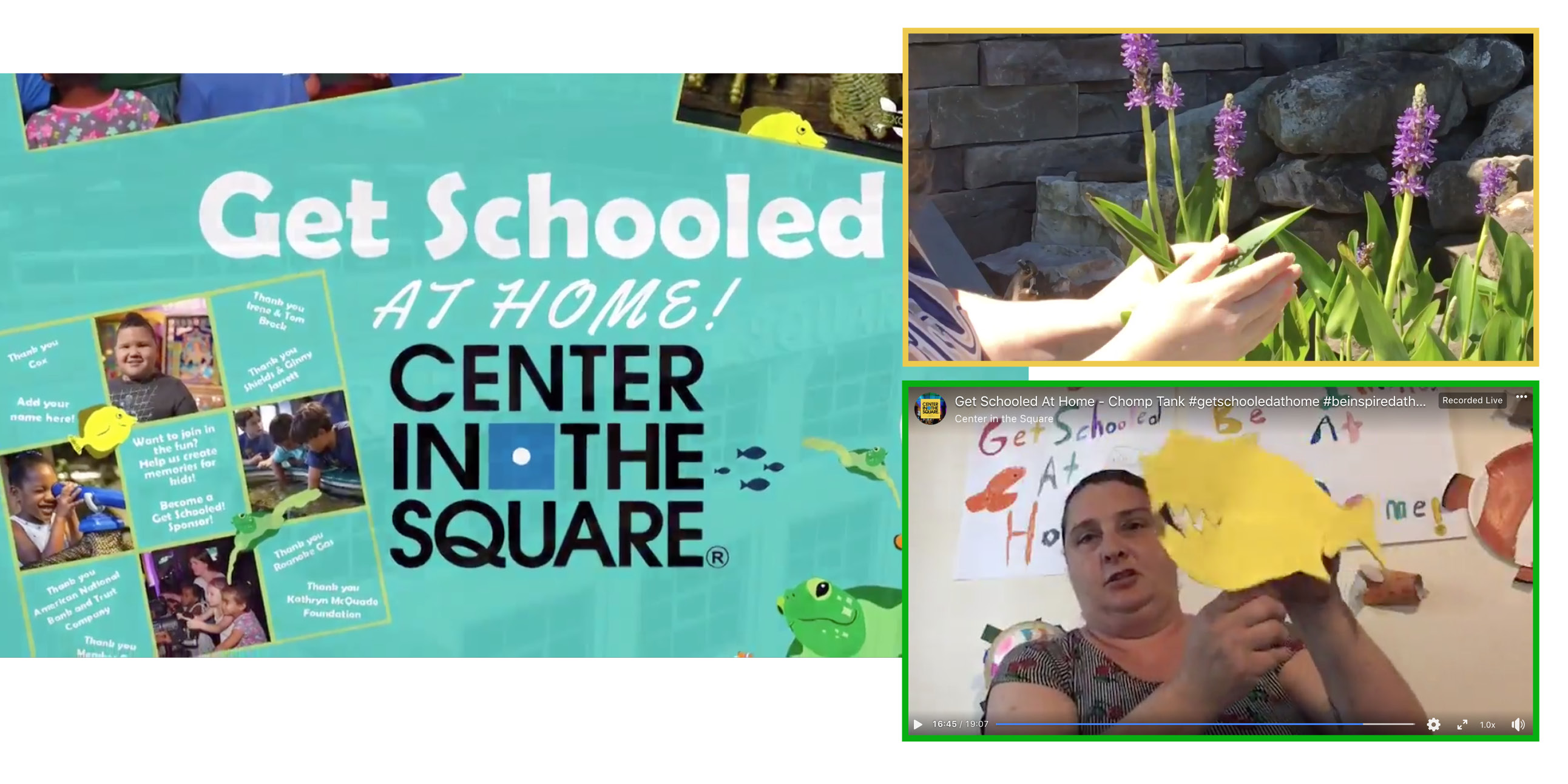
Center In The Square in Roanoke, Va., created video series including weekly craft activities, museum-based educational vides about plants, fish and other topics, and virtual field trips to nearby locations. The videos are hosted on their Facebook page. Images from Center In the Square videos.
But schools also had needs. Corbett was contacted by Patricia Gadreau, administrator of science curriculum for Montgomery County Public Schools, asking whether the center could develop videos that would help students with a new Standards of Learning curriculum.
This question led to the development of virtual “Get Schooled” field trips that the center produced in partnership with other nonprofit organizations. One of the first was with Mill Mountain Zoo, centered on the importance of habitat and adaptation for threatened and endangered species.
In addition to longer videos, the virtual field trips also include “passports” — downloadable or printed assignments to help engage students in the content and provide a grading mechanism for schools that wanted that.
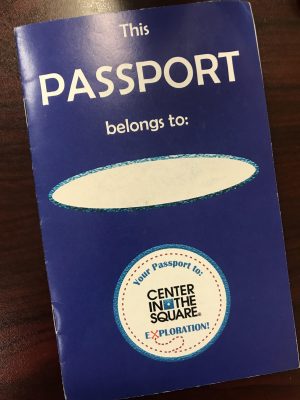
Students participating in virtual field trips had the option to complete assignments in a paper passport, which some schools used as a grading mechanism. Photo courtesy of Center in the Square
“Sometimes when we’re put in a situation that stresses and strains us and pushes us to the limit, we can either sit down and cry or whine about it — or get up and do something,” says Corbett. “The community as a whole got up and did something. That kind of energy is so enticing. It can help regenerate your spirit and soul. That’s what we need at this point.”
The Mine Wars Museum also began developing educational videos, including a mine wars forum that interviewed actors, artists, authors and others about their work related to West Virginia’s coal history.
Chuck Keeney, historian and founding board member of the museum, conducted the interviews online. Chris Cooper — who portrayed union organizer Joe Kenehan in the John Sayles movie “Matewan” — joined him for an interview, as did singer songwriter Steve Earle, who wrote the soundtrack for Coal Country, a Broadway play about the Upper Big Branch mining disaster.
For the 100th anniversary of the Battle of Matewan, the museum put together a 10-minute, unscripted walking tour of the town. “We put it on Facebook and were able to reach thousands of people,” New-Walker says. “We were starting to think about how to do our programs virtually.”
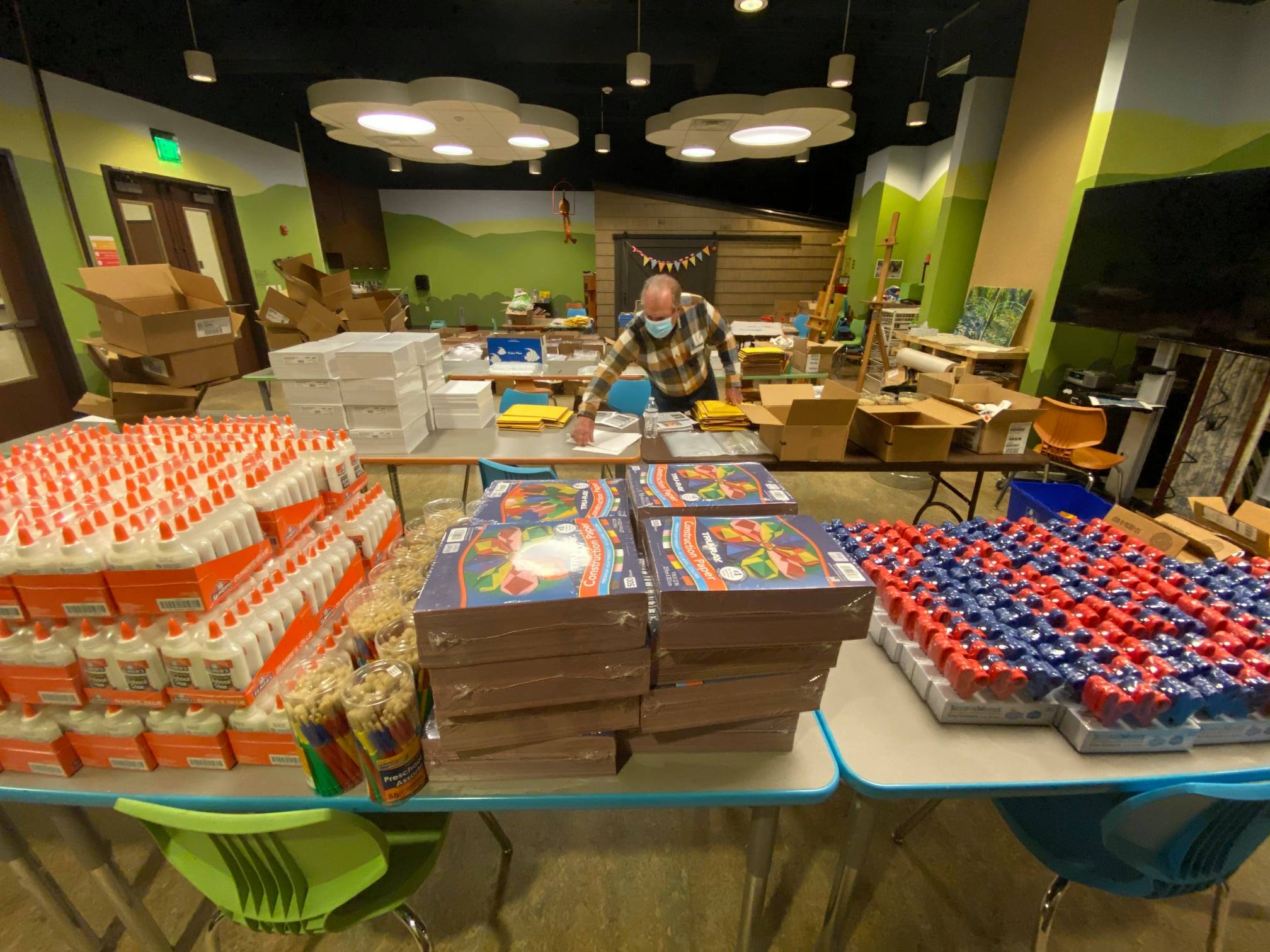
Volunteer John Green builds art kits for Watauga County K-4 students in December 2020 through BRAHM’s program. Photo courtesy of Blowing Rock Art and History Museum
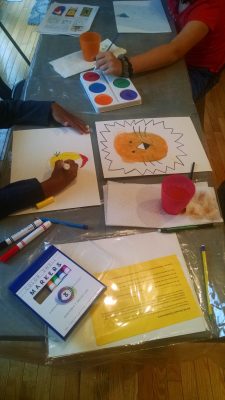
In North Carolina, Watauga County K-2 students received art kits in May from BRAHM with support from the Kennedy-Herterich Foundation.
BRAHM produced an online exhibit of art created by the students.
The International Civil Rights Center & Museum in downtown Greensboro, N.C., was scheduled to host a traveling exhibit about “The Negro Motorist Green Book,” an important resource that helped Black people plan travel in the South during the Jim Crow era, from March 3 through April 22. After the lockdown was imposed, they moved it to the building’s large window fronts.
Later, another exhibit about Martin Luther King Jr.’s March on Washington was also set up in the windows. “It was a way for the public to continue to come by and be engaged when they couldn’t be in the museum,” says John Swaine, CEO of the civil rights museum. “I liked that people would stop and read the exhibits, which were text-heavy.”
ICRCM also produced a series of virtual offerings, offered for purchase on the website. Those will remain even as pandemic restrictions continue to ease.
“It’s going to be very important going forward,” Swaine says. “The International Civil Rights Center & Museum connects with people all over the globe. When we decided we needed to conduct our annual fundraising gala online, it opened up additional possibilities.”
During the gala, the organization’s 2021 Trailblazer award went to Loujain Al-Hathloul, a Saudi Arabian fighting for women’s rights.
The ability to expand reach and exposure has also been a silver lining in the pandemic cloud for the Asheville Art Museum, according to Kristi McMillan, director of learning and engagement.
“We’ve discovered that we can do distance learning,” McMillan says. “Universities have been taking advantage of that for years, but it is not something that museums have incorporated into their educational offerings. We have members now in Montana and England — places we never would have thought of — because people were engaging with us virtually.”

A poster shows the large front windows at the International Civil Rights Center & Museum in Greensboro, N.C., which the organization used as public display venues. Image courtesy of International Civil Rights Center & Museum
“That took a little stress off,” Swaine says. “By the time we qualified for PPP resources, I knew that was an opportunity to do things that in the first 10 years of operations we didn’t have the opportunity to do. We cleaned the museum from top to bottom. We repainted. We refreshed exhibits.”
The Mine Wars Museum received a grant from the National Endowment for the Humanities to digitize its entire collection. “We were able to hire someone to expertly photograph all our artifacts on exhibit and in our archives,” New-Walker says. “The board had talked about doing that for years, but not being open to the public gave us time to do it.”
BRAHM officials had also talked about making online offerings available for a long time, according to Watson.
“We would have people ask us if we recorded lessons or lectures,” Watson says. “We never had the staff to do it. With COVID, we didn’t have an option not to do it. We had two options: do nothing and just kind of panic or channel that anxiety into productivity.”
That productivity has raised BRAHM’s profile and reach. “We increased our presence in the community and around the world,” Watson says. “We’re able to track who our viewers are — and they’re from all around the world. Some of our art lessons have 1,000 views. We did a large series of programs for Black History Month and we saw those lessons take off because our instructor saw gaps and we were able to fill them.”
As millions of vaccine doses are being administered and hope of finally returning to normal wrestles with concerns about a potential fourth surge, museums are looking to a future that, normal or not, will definitely be different than before COVID.
“People would revolt if we didn’t keep the virtual offerings going,” McMillan says. “We’ve come to like it as well. We have now found a way to continue to engage with people from near and far.”
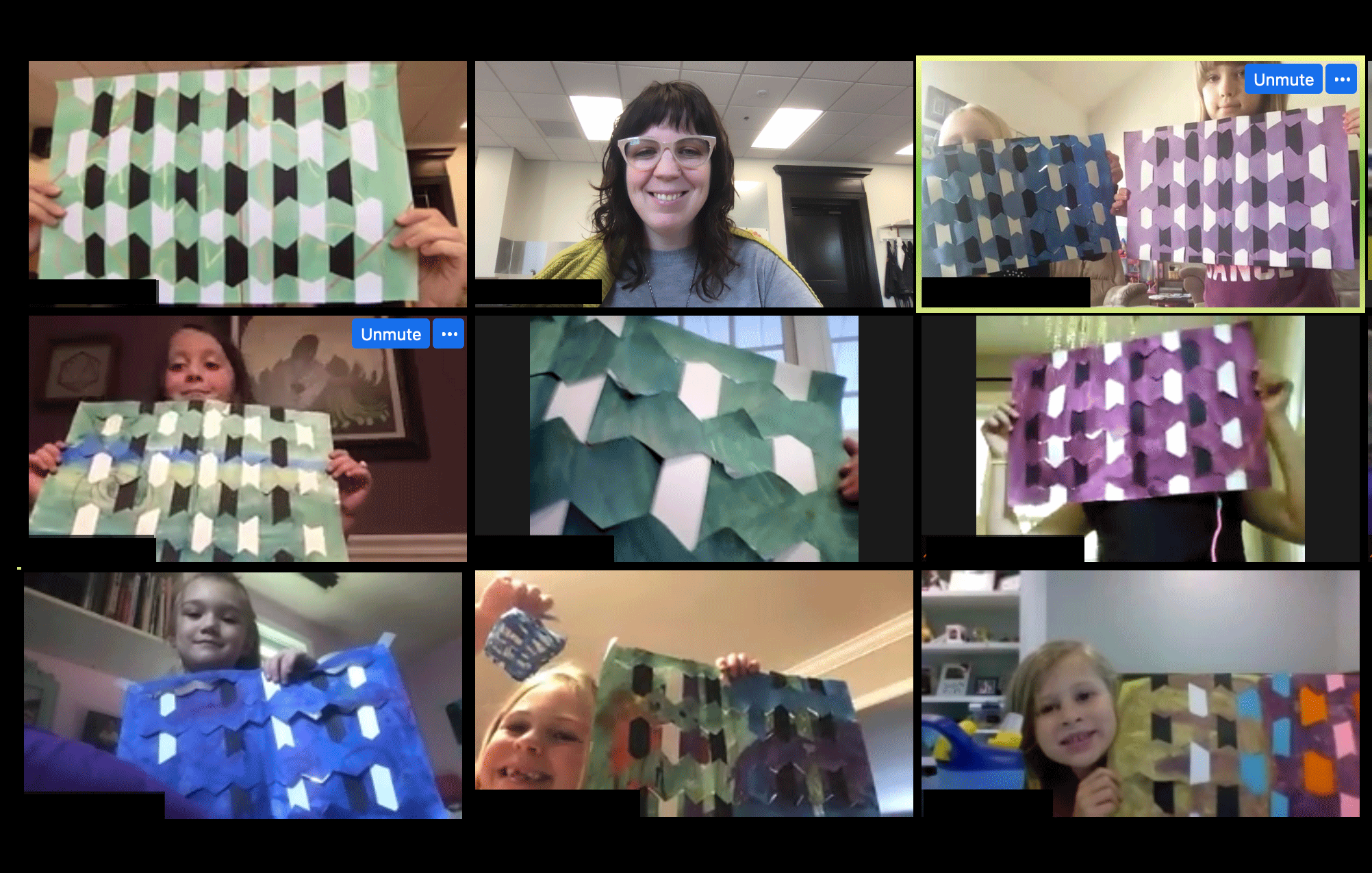
Young artists hold up their projects during a virtual camp held by the Asheville Art Museum. Photo courtesy of Asheville Art Museum
For now, the museum is working on plans to mark the Battle of Blair Mountain centennial in late August and early September.
“We’ve had to move the organizing work online,” says New-Walker. “That’s had its challenges — bandwidth issues in southern West Virginia particularly. There’ve been generational challenges, too. People involved in historic preservation tend to be older. They had to learn new tools and technologies. And we had to learn to meet people where they are, which might mean using email, direct mail or a phone call instead of a Zoom meeting.”
Currently, organizers are planning all of the events to be in person, according to New-Walker. They’ve set a June 1 deadline to determine whether that will be safe.
“It may be that it might not be safe for a large, indoor concert, but it will probably be safe enough for an outdoor walking tour,” says New-Walker. “We’re hoping for a hybrid mix of in-person and virtual events at worst and a full in-person event schedule at best.”
Original plans were for about 15 events, but as more organizations — including unions, humanities organizations and other museums — have gotten involved, the number has grown.
“Right now, we have 25 events, programs or exhibits that are lined up to help mark this monumental milestone in labor history,” says New-Walker. “I’m thrilled that we have all these different folks coming together to share in this vision to commemorate the Battle of Blair, memorialize the men, women and children who were killed and celebrate the spirit of Blair Mountain that is with us today. I’m confident that we’ll be able to have this incredible event series over Labor Day weekend.”
Like this content? Subscribe to The Voice email digests